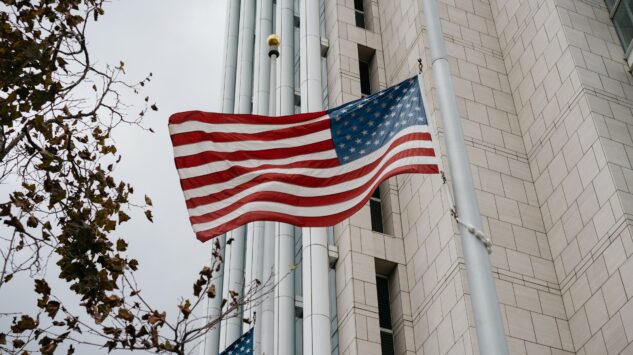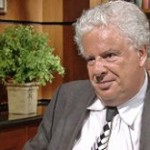Issue Briefs

Guidance for America from wise friends
Martin Sieff
August 15, 2022
The Biden administration remains determined to continue its dangerous confrontation with one thermonuclear superpower, Russia, while simultaneously escalating tensions with the other one – China. We continue to look in vain for cool, dispassionate analysis from Republican and Democrat leaders alike in Washington, whether among aspiring presidential candidates in either party or in the chambers of Congress, but there is almost none.
Borrowing from Churchill
With the exception of the always exceptional Henry Kissinger, wise and experienced minds are notable by their absence. Empty automatic rhetoric, almost all taken from Winston Churchill’s more-than-80-years-old speeches at the time of the 1938 Munich crisis is reheated like an inedible omelet at a bad roadside US diner yet again, when fresh thoughts from serious minds is urgently called for. And in this time, I think back with longing to two great French strategic thinkers who 30 and more years ago grappled with and offered wise guidance through similar crises. Long forgotten, it is time to revisit their teachings.
Wise French Men
Alexandre, Comte de Marenches, and Jean-Marie Benoist were in many ways a study in contrasts, but they agreed on all the things that counted.
Marenches was a soldier, a nobleman and a man of action. For 11 years, from 1970 to 1981, he headed the French foreign intelligence service, then known as the Service de Documentation Exterieure et de Contre-Espionnage, and rebuilt it into one of the most formidable and efficient in the world. In those years, its “humint,” or human intelligence, and analysis capabilities far outstripped those of the CIA. It was he who gave President Ronald Reagan the famous phrase “Evil Empire” to describe the Soviet Union.
Benoist was a scholar, a philosopher and an intellectual. Where Marenches was discreet, he was a passionate and public controversialist. Marenches shaped events in the shadows and wielded immense influence. When he finally went public, in his retirement, it was not for nothing that he entitled his memoirs — a spectacular bestseller in France — “Dans le Secret des Princes” — “In the Confidence of Princes.”
A great deal in common
They had a lot in common also. They were both French patriots in the deepest and best sense of the word, democrats and conservatives to the core of their being. They both combined immense physical courage with the even greater moral kind. They loathed Nazi, Communist and the emerging radical, revolutionary Islamist movements alike.
They were both devout Catholics. Neither of them was infected with contempt or hatred for their own country and culture. They saw in traditional European civilization, with its Judeo-Christian and Greek rationalist roots, a pearl of great price, worth defending at any cost. They were both lifelong friends and admirers of the United States. But neither of them was blind to its policy naivetes, which alarmed them greatly.
Brave but cautious pragmatists
Both of them were brave but cautious and pragmatic patriots: They both regarded the kind of triumphal rhetoric beloved of “new” Democrats and Reagan Republicans alike over the past decade that all the great ideological and cultural clashes of history had been resolved with amusement and withering contempt.
Benoist, a leading political commentator for the respected Paris newspaper Le Monde, was already dead when Francis Fukuyama achieved wealth and acclaim with his ridiculous concept that the collapse of communism meant “The End of History” — the final and lasting triumph of the liberal democratic free market state. But he would certainly have agreed with the scathing response that former U.S. national security adviser Zbigniew Brzezinski gave me in 1993 that “After The End of History comes — more history.”
Free markets and liberalism would not be embraced
Marenches had aristocratic contempt for the delusion that American Reaganite, free-market values would be eagerly embraced by the rest of the world. His caution would have stood us in good stead as we recklessly expanded NATO throughout Eastern Europe, generating, as Kissinger almost alone has recognized, the dangerous and unpredictable enmity of a still thermonuclear-armed Russia.
Marenches’ life had been spent in conflict with one form of totalitarian or coercive terrorist evil after another. As a youth he had fought the Nazis with the Free French. Then came the great colonial war in Algeria against the National Liberation Front, arguably the most terrible and costly “war of national liberation” of modern times, in which millions died. Then, he helped establish France’s stable, prosperous and successful Fifth Republic.
Realism
In other words, Marenches entire life was an example of the dictum of the great 4th century A.D. Roman military historian Vegetius’ dictum — “Qui desiderat pacem, praeparet bellum” — “Whoever desires peace, prepares for war.”
Marenches published a shortened and revised English edition of his great French memoirs, with the revealing title “The Fourth World War: Diplomacy and Espionage in the Age of Terrorism.” In it, he foresaw that the mighty intellectual structure of MAD — Mutually Assured Destruction – deterrence that kept the peace between the United States and the Soviet Union for more than two generations would be inapplicable and obsolete in the terrifying new world of mega-terrorists armed with Weapons of Mass Destruction.
Deterrence will not work with fanatics
Marenches recognized such groups and their leaders were motivated by crazed, extremist political and religious ideologies — often eschatological in nature. And that once they acquired such weapons, they would be only too eager to use them. Marenches had two eerily prescient policy prescriptions to deal with the looming menace of such evils — which he saw when successive US administrations, Republican and Democratic alike, did not.
First and most important, Marenches argued that MAD was indeed obsolete. The only effective deterrent to the slaughter of thousands or even millions, of American, French, Japanese or other citizens of prosperous and peaceful democratic nations could be the doctrine of CD — Certain Destruction. Every group that carried out such attacks, and every government that trained, financed and protected them, had to know that, by doing so, it would invite the certain of a full-scale literal nuclear response on its own heads.
Those ideas sounded ludicrous to the “Wise Men” directing U.S. foreign policy over the 30 years. They still do. But those “Wise Men” failed to anticipate or deter the mega-terrorist attacks of Sept. 11 that took more than 3,000 American lives. And they now fail to recognize the enormous dangers of a Russian leadership armed with a modernized thermonuclear deterrent, making common cause with China and increasingly fearful it has its back to the wall.
Deterrence did not work with Putin in Ukraine
Since the invasion of Ukraine last February, Russia’s willingness to use conventional military force in a full-scale land war against an ally of NATO nations is no longer a hypothetical possibility, it has become a clear reality. Marenches and Benoist would have recognized that the old rhetoric of deterrence, relied upon blindly for so long, no longer applies. Recourse to the measured cadences of Churchill in the 1930s can no longer guide us. We are in a New World now.
The warnings, promises and rhetoric of US President Joe Biden and other NATO governments failed to deter Russia against invading Ukraine and occupying large swathes of the country since February this year. Marenches and Benoist would have acknowledged this. Once deterrence becomes calibrated and predictable, it can be anticipated and eventually ignored, Benoist repeatedly warned.
Marenches too was ahead of his time in warning that the United States was wide open to mega-terrorist attacks. It is no coincidence that French airport security has for decades been far superior to that in the United States. He also warned repeatedly of the fateful dangers of open US land borders.
A doctrine of proportionate response invites attack
Benoist had ideas about deterrence too that have never been taken seriously by U.S. policymakers — at least since Richard Nixon. But they appear remarkably prescient now. He dismissed the prevailing U.S. strategic orthodoxy that responses to enemy military or terrorist acts should be carefully calibrated and restricted in nature.
That kind of predictability, he warned, invited war, aggression and defiance of the Western democracies because enemy leaders would despise it and recognize that they ran no serious risk as long as they made the appropriate noises of denial or contrition after giving the green light to their outrages.
Broad alliance are constrained by the weakest member
Benoist would also have despised Secretary of State Antony Blinken’s efforts to build a broad front coalition to isolate Russia. Such alliances, he warned, only tied the hands and restricted the freedom of action of the lead nations in them and made them more vulnerable to terrorist and other assaults not less; because their so-called “allies” could be relied upon to counsel “restraint” and inaction after each new atrocity. He would have advocated tough, confrontational direct negotiations between Washington and Moscow, untrammeled by the concerns of allies as far more likely to achieve concrete and lasting positive results.
Both Benoist and Marenches are gone now. Marenches lived a life full of years and honor. Benoist was 20 years younger when he died, his fragile health undermined by diabetes, cancer and his refusal to abandon the pleasures of fine wines and food, excellent cigars and long evenings with his many friends in his favorite restaurants of Montmartre and La Rive gauche – the Left Bank of the Seine.
Neither of them ever received the popular or policymaking influence in the United States that they enjoyed in their own country. The American people have paid for that in repeated policy failures in Iraq, Syria, Afghanistan and in the farcically named Global War on Terror. In this new age of confrontation with formidable, well-armed rival superpowers the experience and wisdom of these long-gone great friends and wise guides is missed more than ever.
 |
Martin Sieff is a Global Policy Institute Fellow. He is author most recently of Gathering Storm: The Seventh Era of American History and the Coming Crises That Will Lead to It. |